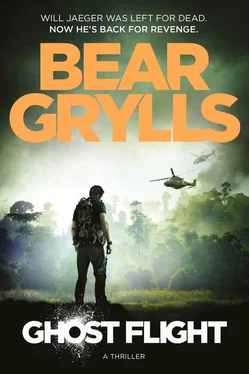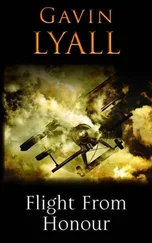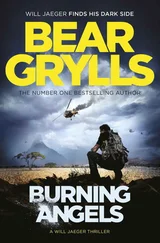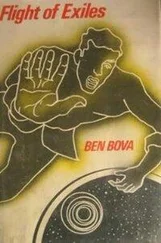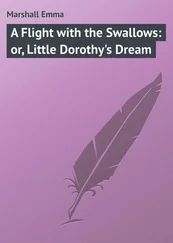He reached the cockpit, slithered down and joined Narov perched on the very nose of the aircraft. It was a precarious position: the ground lay some forty feet below them, straight down. The nose of the warplane was smooth and aerodynamic, yet smeared in seventy years of jungle debris. Jaeger did his best to boot the worst of it away, so he had a half-decent footing.
Dale appeared above, camera in hand, and settled down to film.
Jaeger pulled out a length of paracord from a pouch in his NBC suit, tossed it up to Dale, and had him sling it around the radio mast that protruded from the top rear of the cockpit. Dale dropped it back, and Jaeger fashioned two loops, so that he and Narov had something to hang on to.
Narov was staring through one of the two front window panels. Jaeger could see the smeary marks where she’d used her gloves to try to clear away the worst of the grime, dirt and mildew.
For the briefest of moments, she glanced his way. ‘The side window – I think it has been left unlocked. That is our way in.’
She reached around to the side, her distinctive knife grasped in one hand. Deftly, she inserted the blade into the semi-rotten rubber that formed the seal, and applied pressure. Most such aircraft had sliding windows, so the pilots could speak to the aircrew on the runway below.
Narov was trying to lever this one open.
Inch by inch she prised it back, until there was a gap wide enough to lower herself through. Taking one loop of Jaeger’s paracord, she swung herself around the side of the cockpit, walking her feet along the aircraft’s flank, and kicked her legs inside. Lithe as a cat, she wriggled her hips and torso through the open window, and with barely a glance at Jaeger she was gone.
Gripping the paracord, Jaeger swung himself around and followed after Narov, his boots landing with a harsh clang on the cockpit’s bare metal floor.
It took a few seconds for his eyes to adjust to the gloom.
The first thing that struck him was that he had entered some kind of time capsule. There was no smell, of course, for the respirator filtered everything out, but he could just imagine the fusty, musty aroma of the leather seats, mixed in with the acrid scent of corroded aluminium from the scores of dials that lined the massive flight panel.
Behind him lay what had to be the flight assistant’s seat, tucked into its own cramped alcove and facing towards the rear, with a mass of dials and levers before it. Behind that again lay the navigator’s seat, thrust high into the astrodome, and beyond that in the shadows lurked the bulkhead separating the cockpit from the cargo hold.
The interior of the warplane appeared spookily untouched – as if the aircrew had only abandoned it a few hours previously. There was a tin flask tucked beside the pilot’s seat; next to that, a mug with what Jaeger figured had to be encrusted coffee caked to the bottom.
A pair of Aviator-type shades lay on the pilot’s seat, as if he’d thrown them there while stepping aft to have a chat with the crew manning the hold. The entire impression was somehow so ghostly; yet what had Jaeger been expecting?
There was something bolted above the pilot’s seat that caught his eye. It was an odd – almost alien-looking – contraption, mounted on a swivel, as if it could be dropped over the pilot’s eyes. He glanced at the co-pilot’s seat; a similar device was set above that position as well.
He sensed Narov staring.
‘Is that what I think it is?’ Jaeger queried.
‘Zielgerät 1229 – the Vampir,’ Narov confirmed. ‘Infrared night vision sight, as we would call it today. For making landings and taking off in complete darkness.’
Seeing that Vampir sight clearly came as no surprise to her. But for most of Jaeger’s adult life he had believed night vision to be something invented by the American military, and only a few decades ago. Seeing a working set of such equipment here in this Second World War German plane was mind-blowing.
On the navigator’s desk behind him, Jaeger discovered the remains of a mildewed chart, with pencil and dividers lying to one side. The navigator had clearly been a heavy smoker. A heap of semi-decomposed cigarette butts lay in a flick-out ashtray, beside a Luftwaffe-issue packet of rip-off matches.
Tucked into what had to be the navigator’s file was an old and yellowing image. Jaeger reached for it. It was an aerial photo, and he realised almost instantly that it showed the airstrip as it must have looked when it had first been hacked out of the jungle, some seven decades ago.
It was labelled with various German words, one of which, Treibstofflager , had the symbol of a fuel drum drawn beside it. It was the Treibstofflager that had run dry, of course, so trapping this warplane here seemingly for ever.
Jaeger turned to show Narov, but she had her back to him, and there was something furtive about her posture. She was bent over a leather flight satchel, her hands feverishly leafing through a sheaf of documents. From her body language alone, Jaeger figured she’d got whatever she’d come here for, and that no one was about to part her from whatever was in that satchel.
She must have sensed his eyes upon her. Without a word, she shrugged off her backpack, stuffed the satchel deep inside it, and turned towards the aircraft’s hold. She glanced Jaeger’s way. From what he could see of her face behind the mask, it appeared flushed with excitement. But there was also an evasiveness – a defensive, self-protective look – in her eyes.
‘Found what you’re looking for?’ he queried pointedly.
Narov ignored the question. Instead, she gestured towards the warplane’s rear. ‘That way – if you really want to see what secrets this aircraft holds.’
Jaeger made a mental note to tackle her over that satchel-load of documents once they were done getting the warplane lifted out of there. Time was too pressing for any such confrontation now.
Narov indicated the bulkhead. There was an oblong hatchway set into it, which had been sealed shut by a handle locked into the vertical position. An arrow pointed downwards, with the German words stamped beside it: ZU OFFNEN .
It needed no translating.
Jaeger reached for the handle. For a brief moment he hesitated, before slipping his hand inside his chest pouch and pulling out a Petzl head torch. He loosened its straps and pulled it on over his hood and mask. Then he reached for the lever again and wrenched it down into the horizontal position, before swinging the heavy door wide.
All was darkness inside the Ju 390’s cavernous rear.
Jaeger felt about with his gloved hand and twisted the glass of his head torch, switching it on. A burning blue light stabbed out from the Petzl’s pair of xenon bulbs. The twin rays pierced the gloom, playing like a laser show across the interior, catching in layers of what resembled mist lying thick across the hold.
The mist reached out towards Jaeger, trailing ghostly tendrils all around him.
He peered deeper inside. This far forward, the Ju 390’s hold was at least the height of two fully grown men, and even wider at its base. And as far as Jaeger could tell, the entire length of the fuselage was stacked high with cargo crates. Each was lashed to steel lugs set into the aircraft’s floor, to prevent the load from shifting about during flight.
Jaeger took a first cautious step inside. He had every confidence in their Avon NBC kit, but stepping into an unknown hazard like this was still daunting. There was no known toxic agent that could defeat such protective suits and masks, but what if the warplane’s hold had somehow been booby-trapped?
The fuselage sloped away from him, the aircraft sitting lower to the ground at its rear. As he gazed about, he noticed the beam of his torch catching on long filaments of silver, strung from one side of the hold to the other. At first he thought he’d discovered the hidden trip wires left behind by those who had abandoned this warplane – perhaps tethered to explosive charges.
Читать дальше
